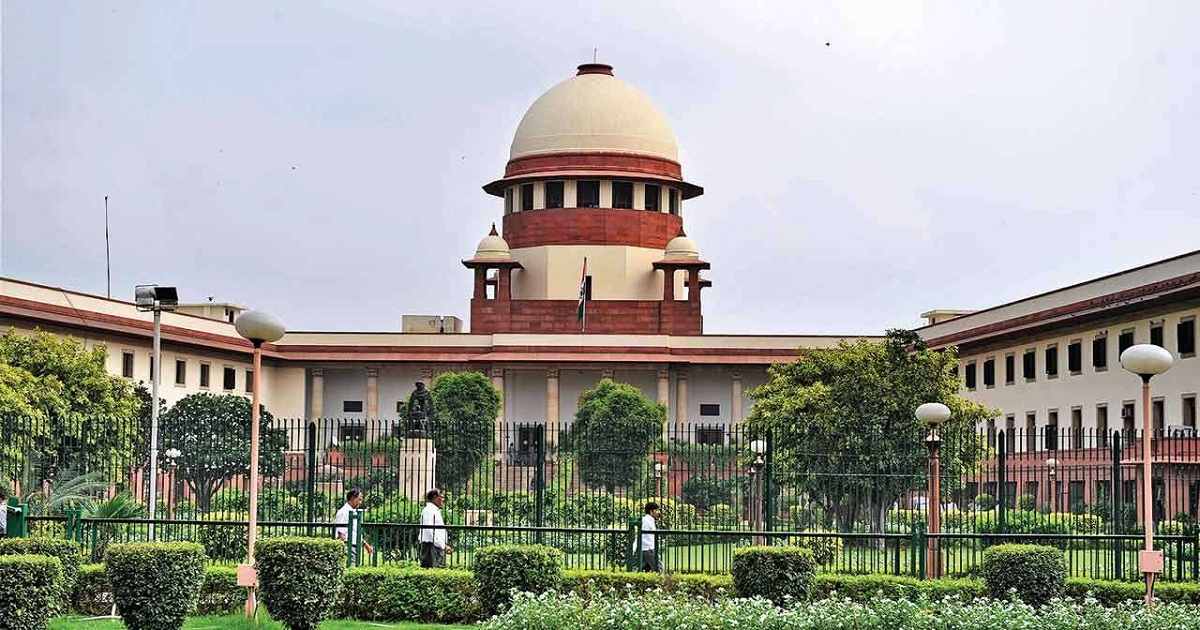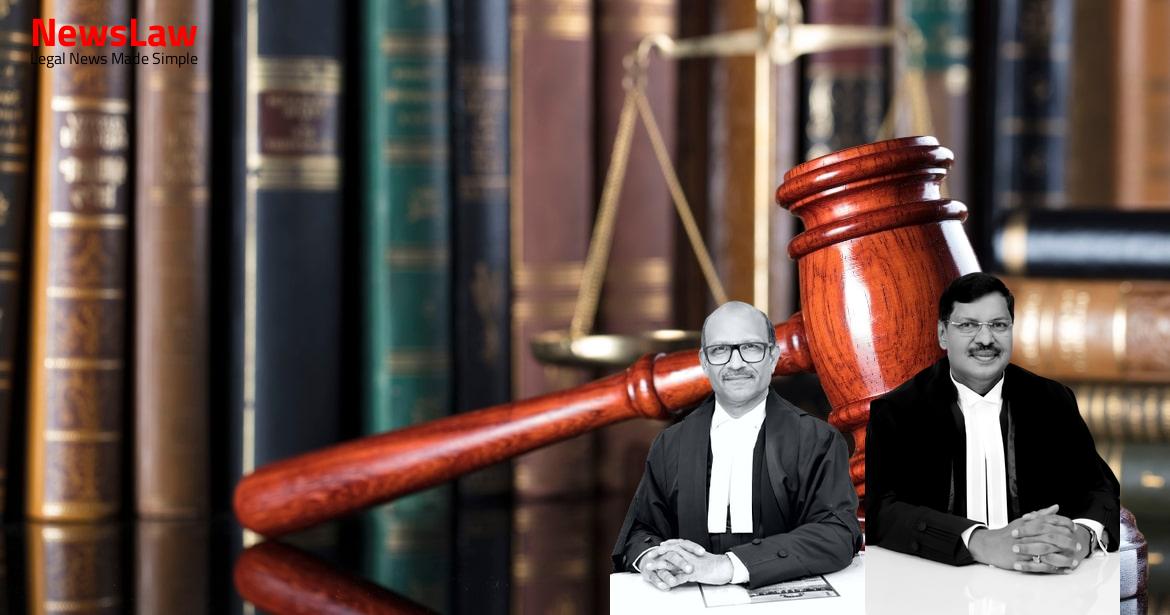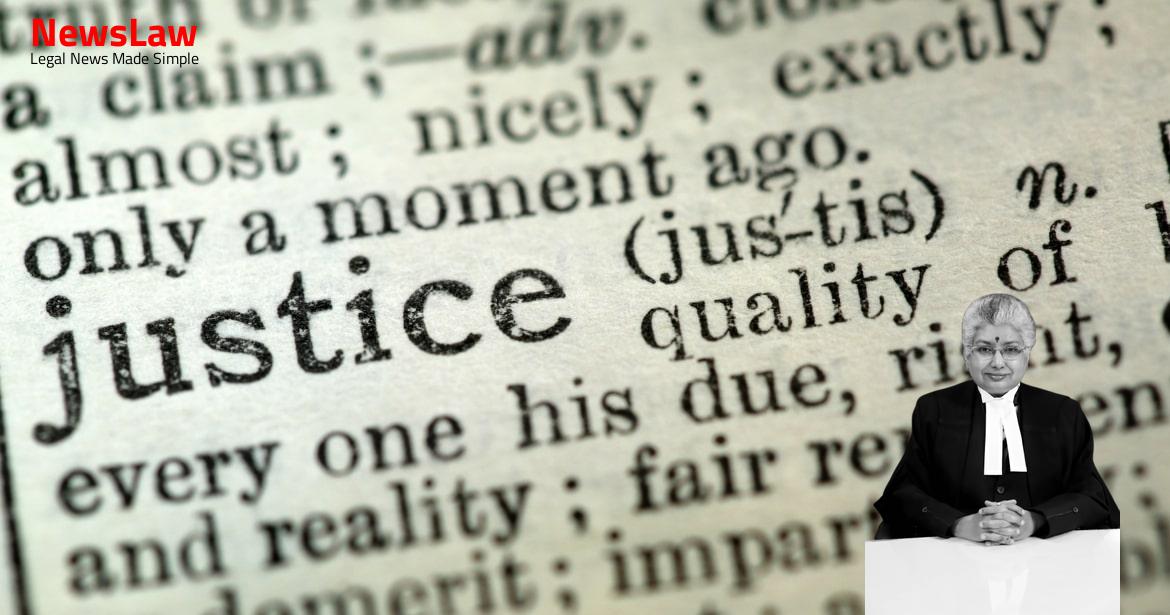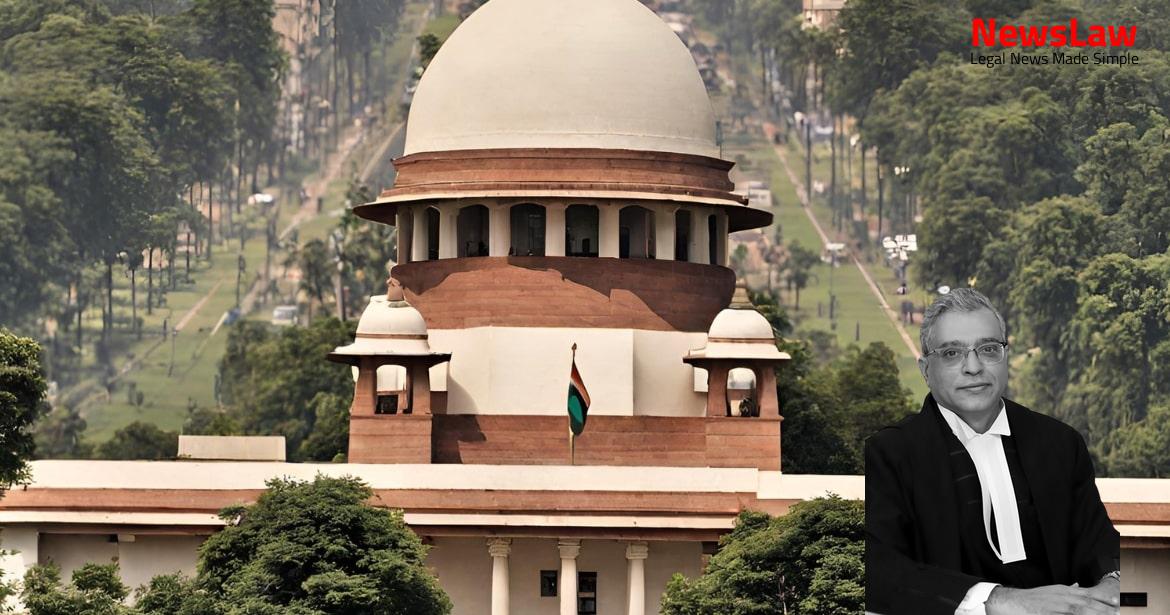The appeal of the appellants in the murder trial, involving the State as the respondent, has seen a major turn of events. The High Court has delivered a verdict acquitting the accused of all charges due to lack of conclusive evidence. The trial court and the High Court’s judgements were set aside, bringing a definitive end to the legal battle involving the State as the prosecuting party.
Facts
- Appellants were arrested on 23 July, 2014, and the case was committed to the Sessions Judge on 10 December, 2014.
- Charges were framed against the appellants on 6 May 2015 for offences under Sections 120-B and 302 of IPC.
- Investigation concluded with a charge-sheet filed for offences under Sections 120-B and 302 read with Section 34 of IPC.
- Altered charges were framed on 11 June 2019 under Sections 120-B and 302 read with 34 of IPC.
- The complainant identified the Moped at the crime scene and found the deceased with fatal injuries.
- The deceased was found alive but unconscious, with significant head injuries.
- The incident involved the deceased being assaulted with a chopper by the appellants on the Bisanathamm-Tholampalli road.
- The complainant and Babu (PW-6) rushed the deceased to KGF Hospital where he was declared dead.
- The deceased was on his way to Tholampalli for a loan recovery visit when he was attacked and murdered by the appellants.
- High Court partly allowed the appeal and modified the conviction to Section 304 Part-I of IPC.
- Appellants sentenced to undergo imprisonment for 10 years and fined Rs. 75,000/- each.
- Fine amount of Rs. 1,40,000/- to be paid to PW-7-Sarla, wife of deceased.
- Fine of Rs. 7,500/- for each offence imposed on both appellants.
- Rs. 25,000/- to be paid as compensation to the complainant from the fine amount.
Also Read: Cheating Allegations: Quashing of FIR and Charge-sheet
Arguments
- The appellants are to be acquitted of the charges as the prosecution failed to prove any incriminating circumstances.
- The prosecution was unable to establish the chain of circumstances necessary to prove the guilt of the accused.
- The case is based on circumstantial evidence but lacks sufficient proof to convict the appellants.
- The trial court and the High Court made a gross error in convicting the appellants according to Shri Devasa, learned counsel.
- Both courts have held that prosecution proved chain of circumstances leading to guilt of the accused.
- Respondent’s counsel argues no interference is needed in the appeal.
Also Read: NBCC (India) Limited vs. Zillion Infraprojects Pvt. Ltd.
Analysis
- The High Court reversed the finding on the issue of financial loss and enmity between the deceased and Accused No.1.
- Trial court found that prosecution proved the motive behind the crime, but accused cannot be convicted on suspicion alone.
- Prosecution failed to establish misunderstanding through witnesses, even though there was a panchayat convened on the matter.
- The High Court found that the reasoning of the trial judge regarding the motive needs interference.
- Only the third circumstance of recovery is left for consideration.
- Circumstances relied on by prosecution were last seen theory, motive, and recovery of the chopper.
- Prosecution needs to discharge the burden initially for recovery to be considered.
- Accused is presumed innocent until proven guilty beyond a reasonable doubt.
- The testimonies of witnesses Sarla and Shivaraj about seeing Accused nearby the incident site were not sufficient for conviction.
- High Court’s reliance on conjectures and surmises in finding conviction based on ‘last seen’ theory was criticized.
- Babu’s evidence about an unattended two-wheeler does not directly implicate the Accused.
- The prosecution failed to establish that Accused No.1 possessed enmity resulting in the deceased’s death.
- PW-7 did not mention seeing the Accused near where the deceased was found, undermining the ‘last seen’ theory.
- Panchayatdar was not cited as a witness by the investigating agency to establish motive.
- Merely seeing the Accused nearby with a chopper does not prove the deceased was last seen with them.
- It is important to establish the circumstances from which guilt is drawn
- The accused ‘must be’ proven guilty, not merely ‘may be’
- The evidence should point only towards the guilt of the accused and exclude all other hypotheses
- There must be a conclusive chain of evidence leaving no room for an innocent conclusion
- The act must have been done by the accused within all human probability
- Recovery alone is not sufficient to prove a case beyond reasonable doubt.
- The prosecution must provide additional evidence to support their case.
- Whether the recovery is linked to the accused must be established through concrete evidence.
Also Read: State vs. Accused No. 1: Quashing of Criminal Proceedings
Decision
- The High Court agreed that the appellants committed the crime but changed the conviction from Section 302 to Part-I of Section 304 of IPC.
- No discussion was provided in the judgement for the alteration in the conviction.
- The judgement was found to be unsustainable due to lack of reasoning.
- The appeal was allowed and the impugned judgements from the High Court and trial court were quashed and set aside.
- The appellants were acquitted of all charges and directed to be released immediately unless they are needed in another case.
- Pending applications were disposed of as well.
Case Title: RAGHUNATHA Vs. THE STATE OF KARNATAKA (2024 INSC 238)
Case Number: Crl.A. No.-001729-001729 / 2024



